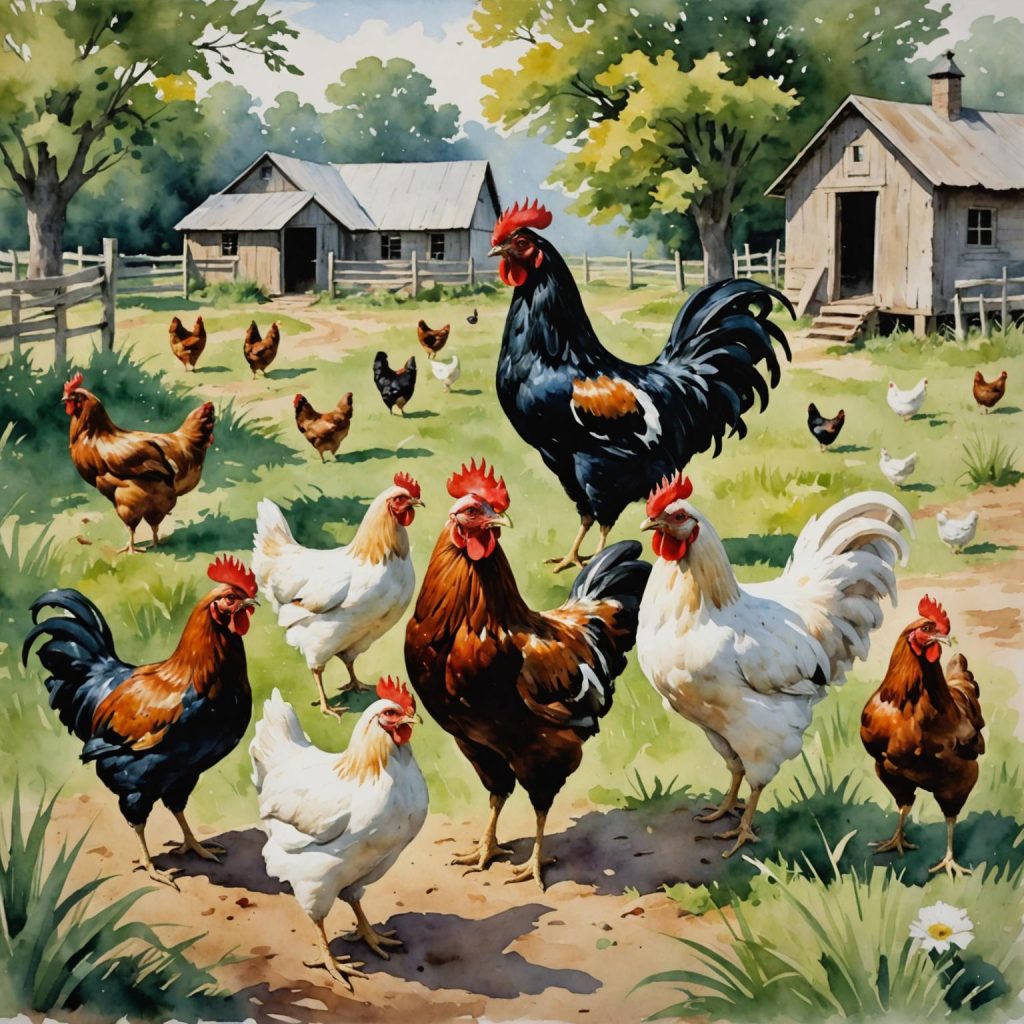When it comes to raising chickens, there are several initial setup costs to consider. First and foremost, you will need to invest in a suitable coop for your chickens. This can range from a simple DIY project to a more elaborate pre-made coop, depending on your budget and preferences. Additionally, you will need to purchase feeders and waterers, as well as nesting boxes and roosts for your chickens to sleep on. Other initial setup costs may include fencing to create a safe outdoor space for your chickens to roam, as well as heat lamps or other heating sources for colder climates. It’s important to budget for these initial setup costs in order to ensure that your chickens have a comfortable and safe living environment from the start.
In addition to the physical setup, there are also other initial costs to consider, such as the purchase of the chickens themselves. Whether you choose to buy chicks or full-grown hens, there will be an initial cost associated with acquiring your flock. You may also need to invest in bedding materials, such as straw or wood shavings, as well as any necessary tools or equipment for maintaining the coop and caring for your chickens. It’s important to carefully consider these initial setup costs and budget accordingly in order to ensure that you are fully prepared to start raising chickens.
Table of Contents
Ongoing Expenses
Once you have your chickens set up in their coop, there are several ongoing expenses to consider. One of the most significant ongoing expenses is the cost of feed for your chickens. Depending on the size of your flock and the quality of the feed you choose, this can be a significant expense over time. Additionally, you will need to budget for bedding materials, such as straw or wood shavings, which will need to be replaced regularly to keep the coop clean and comfortable for your chickens. Other ongoing expenses may include the cost of veterinary care and medications for your chickens, as well as any additional equipment or supplies that may be needed as your flock grows.
In addition to these basic ongoing expenses, there are also other potential costs to consider. For example, if you live in an area with cold winters, you may need to invest in heating sources for your coop to keep your chickens warm and comfortable. You may also need to budget for pest control measures, such as treating for mites or other parasites that can affect your flock. It’s important to carefully consider these ongoing expenses and budget accordingly in order to ensure that you can provide for the needs of your chickens over the long term.
Feed and Bedding Costs
One of the most significant ongoing expenses when it comes to raising chickens is the cost of feed and bedding. The type and quality of feed you choose for your chickens can have a significant impact on their health and well-being, so it’s important to budget accordingly for this expense. Additionally, you will need to regularly replace bedding materials in the coop in order to keep it clean and comfortable for your flock. Depending on the size of your flock and the quality of the feed and bedding materials you choose, these ongoing costs can add up over time.
When it comes to feed costs, there are several factors to consider. The type of feed you choose for your chickens can vary depending on their age and stage of development, as well as their specific dietary needs. Additionally, the size of your flock will also impact the amount of feed you need to purchase on a regular basis. It’s important to carefully consider these factors and budget accordingly in order to ensure that you can provide for the nutritional needs of your chickens over the long term.
In addition to feed costs, there are also ongoing bedding costs to consider. The type of bedding materials you choose for your coop can impact the cleanliness and comfort of your chickens’ living environment, so it’s important to choose high-quality materials that are suitable for your flock. Additionally, you will need to regularly replace bedding materials in order to keep the coop clean and free from pests and odors. It’s important to carefully consider these ongoing costs and budget accordingly in order to ensure that you can provide a safe and comfortable living environment for your chickens.
Health and Veterinary Care
Another ongoing expense to consider when raising chickens is the cost of health and veterinary care. Just like any other pet or livestock animal, chickens can experience health issues that may require veterinary attention or medication. It’s important to budget accordingly for these potential expenses in order to ensure that you can provide for the health and well-being of your flock.
When it comes to health and veterinary care for chickens, there are several potential expenses to consider. For example, you may need to budget for routine vaccinations or medications to prevent common poultry diseases. Additionally, you may need to invest in pest control measures, such as treating for mites or other parasites that can affect your flock. In the event that one of your chickens becomes ill or injured, you may also need to budget for veterinary care or medications in order to treat the issue and ensure that your chicken recovers.
In addition to these potential expenses, it’s also important to consider the cost of maintaining a first aid kit and other basic medical supplies for your chickens. Having these supplies on hand can help you address minor health issues or injuries quickly and effectively, which can ultimately save you money on veterinary care in the long run. It’s important to carefully consider these potential expenses and budget accordingly in order to ensure that you can provide for the health and well-being of your flock over time.
Coop Maintenance
Maintaining a clean and comfortable living environment for your chickens is essential for their health and well-being, but it also comes with ongoing costs. Coop maintenance is an important aspect of raising chickens, and it’s important to budget accordingly for this expense in order to ensure that your flock has a safe and comfortable place to live.
When it comes to coop maintenance costs, there are several factors to consider. For example, you will need to regularly replace bedding materials in the coop in order to keep it clean and free from pests and odors. Additionally, you may need to invest in pest control measures, such as treating for mites or other parasites that can affect your flock. You may also need to budget for routine cleaning supplies, such as disinfectants or other products that can help keep the coop clean and sanitary.
In addition to these ongoing maintenance costs, there are also potential repair expenses to consider. Over time, wear and tear on the coop can lead to the need for repairs or replacements of certain components, such as roosts or nesting boxes. It’s important to carefully consider these potential expenses and budget accordingly in order to ensure that you can provide a safe and comfortable living environment for your chickens over time.
Time and Effort
Raising chickens requires a significant investment of time and effort, which is another important factor to consider when it comes to the overall cost of raising chickens. From daily chores such as feeding and watering your flock, to regular cleaning and maintenance of the coop, there are several tasks that require consistent attention in order to ensure that your chickens are healthy and well-cared for.
When it comes to time and effort, there are several factors to consider. For example, feeding and watering your flock will require daily attention in order to ensure that they have access to fresh food and water at all times. Additionally, regular cleaning and maintenance of the coop will require consistent effort in order to keep it clean and comfortable for your chickens. Other tasks, such as collecting eggs or monitoring the health of your flock, will also require regular attention in order to ensure that your chickens are thriving.
In addition to these daily tasks, there are also other time-consuming aspects of raising chickens to consider. For example, if you choose to raise chicks from infancy, you will need to invest time and effort into caring for them until they are old enough to join the rest of your flock. Additionally, if you choose to breed your chickens or raise them for meat production, there will be additional time and effort required in order to manage these processes effectively. It’s important to carefully consider these time and effort requirements and budget accordingly in order to ensure that you can provide the necessary care for your flock over time.
Potential Savings and Benefits
While there are certainly costs associated with raising chickens, there are also potential savings and benefits that should be considered when evaluating the overall financial impact of this endeavor. For example, one potential benefit of raising chickens is the ability to produce your own eggs at home, which can ultimately save you money on grocery expenses over time. Additionally, if you choose to raise chickens for meat production, this can also result in potential savings on meat expenses.
In addition to potential savings on food expenses, there are also other potential benefits of raising chickens that should be considered. For example, chicken manure can be used as a valuable fertilizer for gardens or crops, which can ultimately save you money on purchasing commercial fertilizers. Additionally, if you have a surplus of eggs or meat from your flock, you may have the opportunity to sell these products locally in order to generate additional income.
Furthermore, raising chickens can also provide intangible benefits that should be considered when evaluating the overall financial impact of this endeavor. For example, many people find joy and satisfaction in caring for their flock and watching them thrive over time. Additionally, raising chickens can provide an opportunity for education and learning about animal husbandry and sustainable living practices. It’s important to carefully consider these potential savings and benefits when evaluating the overall financial impact of raising chickens in order to gain a comprehensive understanding of this endeavor.
In conclusion, raising chickens comes with several initial setup costs as well as ongoing expenses such as feed and bedding costs, health and veterinary care expenses, coop maintenance costs, as well as time and effort requirements. However, there are also potential savings and benefits associated with raising chickens that should be considered when evaluating the overall financial impact of this endeavor. By carefully considering all of these factors and budgeting accordingly, it is possible to provide a safe and comfortable living environment for your flock while also potentially saving money on food expenses and enjoying the many benefits that come with raising chickens at home.
Meet Walter, the feathered-friend fanatic of Florida! Nestled in the sunshine state, Walter struts through life with his feathered companions, clucking his way to happiness. With a coop that’s fancier than a five-star hotel, he’s the Don Juan of the chicken world. When he’s not teaching his hens to do the cha-cha, you’ll find him in a heated debate with his prized rooster, Sir Clucks-a-Lot. Walter’s poultry passion is no yolk; he’s the sunny-side-up guy you never knew you needed in your flock of friends!







